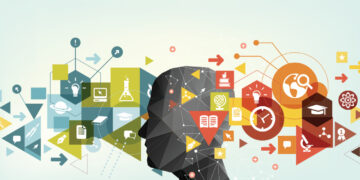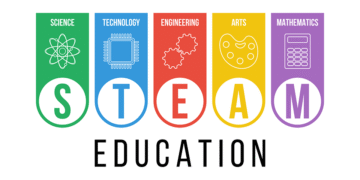Smart Classrooms: Where Artificial Intelligence Meets Traditional Teaching
The integration of artificial intelligence (AI) into education is rapidly transforming how educators teach and students learn, leading to the emergence of the “smart classroom.” This evolution is no longer a concept of the future but an evolving reality.
AI Adoption Across Schools
AI is increasingly prevalent across the educational landscape. Data indicates that many schools are incorporating AI into their curricula, with secondary schools and those with larger student bodies at the forefront of teaching AI concepts. For instance, nearly half of all U.S. public schools (47%) teach AI to some or all students.
School leaders generally express positive attitudes toward AI’s role in education. A significant number believe that integrating AI technologies can simplify teachers’ tasks, enhance the relevance of lessons, and improve overall teaching effectiveness. This suggests a growing acceptance of AI as a valuable tool in education.
Personalized Learning: The Rise of AI-Powered Assistants
AI-powered personalized learning is revolutionizing education by adapting content, identifying learning issues, and accommodating different learning styles.
The AI Education Boom
AI is rapidly becoming an indispensable tool in education. A recent study indicated that a significant percentage of students are already using AI in their studies. The global AI in education market is substantial and is expected to continue growing rapidly, reflecting a significant shift toward personalized learning.
AI enables real-time content adjustments, helping educators identify learning difficulties early and support various learning needs. This shift is reshaping smart classrooms and making education more individualized. This transformation is supported by market data and adoption rates, highlighting the increasing use of AI among students and the significant market value of AI in education. The expected annual growth rate further emphasizes this technology’s growing importance.
| Metric | Value | Unit | Population / Scope | Year |
|---|---|---|---|---|
| Students using AI in their studies | 86 | % | Global (Digital Education Council) | 2024 |
| Global AI in Education Market Value | 5.88 | USD Billion | Global | 2024 |
| Expected Annual Growth Rate for AI in Education (2025-2030) | 31.2 | % CAGR | Global | 2025+ |
source_name: Grand View Research & Digital Education Council Global AI Student Survey 2024
Data-Driven Education: Learning Analytics and the Future
The integration of data analytics is transforming education, offering insights that personalize learning and improve outcomes. This shift is creating more adaptive and responsive educational environments.
The Rise of Learning Analytics
Learning analytics are becoming essential in education. They enable educators to process real-time data, tailor learning paths, and identify struggling students. This proactive approach supports personalized learning experiences. AI-powered tools are enhancing student engagement and supporting early intervention. Studies suggest that engagement can increase significantly. These technologies are crucial for addressing learning loss and promoting academic recovery.
Virtual Classrooms: Redefining Online Learning
The shift towards online learning is undeniable, with a significant portion of students now engaging in virtual education. Online platforms are evolving to enhance connectivity and engagement, creating a more dynamic and accessible learning environment.
The Rise of Virtual Learning
Recent data indicates a notable increase in online learning in higher education. A substantial number of students are now taking all their classes online, with even more participating in some form of virtual instruction. This transition highlights the growing importance of robust online platforms in education.
Virtual platforms are redefining connectivity by providing access to geographically diverse populations. These platforms break down traditional barriers, enabling students from various locations to participate in educational opportunities. This widespread adoption emphasizes the need for continuous improvement in digital infrastructure.
Institutions are actively developing engagement strategies to replicate social interaction and personalized support in digital environments. The goal is to create a sense of community and provide students with the resources they need to succeed in their online learning journey. The integration of smart classroom technologies powered by AI is becoming increasingly prevalent. These technologies offer adaptive learning pathways, monitor student engagement, and personalize content delivery. Such advancements are expected to accelerate as digital infrastructure matures.
AI-Enhanced MOOCs: Custom Education for Every Learner
The integration of AI in MOOCs is personalizing education like never before, reshaping learning experiences to be more adaptive and tailored to individual needs.
The MOOC Landscape and AI Integration
MOOC platforms have experienced significant growth, attracting a vast number of learners globally. AI is now being integrated to enhance these platforms, creating personalized learning experiences. This includes AI-driven tools that adapt to a learner’s pace and style, providing customized content and support. A significant percentage of students are already using AI tools to assist with their studies. These tools range from AI-powered research assistants to platforms like ChatGPT, which help with study and assessments. The integration of AI is enabling students to access information and support in ways that were previously unimaginable.
Educators are also increasingly adopting AI to personalize the learning experience. Many teachers are using AI for personalized learning, AI-powered educational games, adaptive learning platforms, and AI chatbots for student support. This shift indicates a move toward more dynamic and responsive teaching methods.
MOOC platforms boast impressive user numbers, with AI adoption rates among students and educators also showing substantial growth. As of early 2025, Coursera had 148 million learners, and Udemy had 69 million. The total number of MOOC learners globally reached 180 million. Approximately 66% of students in North America use AI study tools, with 50% using ChatGPT for study and research and 48% using it for online quizzes and tests. Additionally, 60% of educators are adopting AI in the classroom, with 51% using AI-powered educational games, 43% using adaptive learning platforms, and 35% using AI chatbots for support.
As AI continues to evolve, its role in creating personalized educational journeys will only expand. The combination of MOOCs and AI offers the potential to cater to individual learning styles and needs, making education more accessible and effective for everyone.
Q&A
Question 1: How is AI impacting personalized learning, and what are some key statistics supporting this impact?
Answer: AI is revolutionizing personalized learning by adapting content to individual student needs, identifying learning difficulties early, and supporting diverse learning styles. A global survey indicates 86% of students are already using AI in their studies. The global AI in education market is valued at $5.88 billion in 2024, with a projected annual growth rate of 31.2% from 2025-2030. This demonstrates a significant shift towards personalized learning driven by AI.
Question 2: What is the current state of online learning and how is AI contributing to its improvement?
Answer: Online learning is experiencing substantial growth, with a significant percentage of students enrolled in online courses, either exclusively or partially. AI is enhancing online learning by powering smart classrooms that offer adaptive learning pathways, monitor student engagement, and personalize content delivery. This is crucial for maintaining connectivity and engagement in virtual learning environments and overcoming the challenges of distance learning. Data shows varying levels of online enrollment across different US states, highlighting the widespread adoption of online learning formats.







